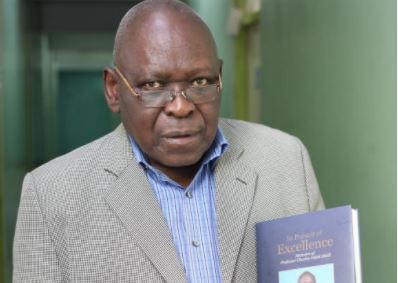×
The Standard e-Paper
Stay Informed, Even Offline

Professor Charles Odidi Okidi, the author of In pursuit of Excellence. [Wilberforce Okwiri, Standard}
Walking with donkeys for whatever distance is not an easy task. It is less complicated than a rural boy learning to ride a bicycle in a village where such a device is a novelty, only seen when dignitaries came calling.